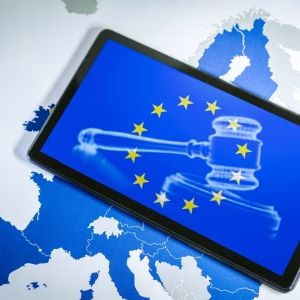
The European Commission has proposed new rules to address distortions caused by foreign subsidies in the EU’s single market. Aimed at levelling the playing field, the regulation would allow the EU to block acquisitions and public procurement bids from companies judged to unfairly benefit from foreign subsidies. Although the rules will apply equally to non-EU firms, experts believe they are mainly targeted at Chinese companies, which are often the recipients of generous state subsidies and which in recent years have regularly targeted European tech firms.

“For more than 60 years, we’ve had a system of state aid control to prevent subsidy races between our member states,” Margrethe Vestager, the commission executive vice-president who oversees competition, announced yesterday. “And today we are adopting a proposal to also tackle distortive subsidies granted by non-EU countries. It is all the more important to ensure a level playing field in these challenging times, to support the recovery of the EU economy.”
The EU has other tools to address foreign subsidies, including trade defence instruments and foreign investment screening for potential security threats. But its state aid rules currently only target subsidies from EU member states. This means that subsidies granted by non-EU governments are subject to far less scrutiny than subsidies granted by member countries. The new regulation is positioned to plug this “regulatory gap”, where foreign subsidies take the form of financing acquisitions of EU companies or bidding in a public procurement procedure.
EU foreign subsidies legislation: how it works
The draft regulation proposes a pre-notification system for transactions involving foreign subsidies, a pre-notification system for public bids involving foreign subsidies, and a tool to investigate other economic activities involving foreign subsidies. “Neither the existing EU rules – on state aid, merger control, public procurement – nor the WTO or trade agreements’ provisions offer comparable regulatory tools and are of different or narrower scope,” says Anastasios Tomtsis, partner at Clifford Chance law firm.
The new rules are just one element of the EU’s expanding regulatory net. “EU rules and oversight of mergers and acquisitions are undergoing the most significant changes we have seen for decades,” says Tomtsis, noting they come on top of recent European Commission guidance on merger controls targeting “killer acquisitions”, the Digital Markets Act, and new foreign investment screening regimes being introduced across the EU. “These are policy-shifting changes.”
A bulwark against state-sponsored Chinese companies.
Some have framed the EU foreign subsidies legislation as a bulwark against state-backed Chinese businesses. As Tech Monitor reported last month, Chinese companies have been regularly targeting European tech firms for acquisitions in recent years, with high-profile deals including the $5bn purchase of German robotics business Kuka by Chinese electronics company Midea.
The new legislative proposal makes sense in the context of the EU’s evolving China policy, says Rebecca Arcesati, an analyst at Merics. In its March 2019 Strategic Outlook on China, the Commission recommended the EU’s defensive toolbox be reinforced to ensure fair competition between EU and large Chinese firms, especially state-owned or state-backed ones. The current proposals are the results of the consultation process that followed. “Basically, when you have massive state-owned enterprises benefiting from cheap loans, all sorts of direct and indirect subsidies, protectionism in their home market, state-orchestrated mega-mergers, and simply a green light to operate outside market rules, you have a competition problem with significant global spillovers,” says Arcesati.
The new proposal, combined with previous China-focused changes to trade defence instruments, the landmark imposition of tariffs on Egypt-based subsidiaries of Chinese glass fibre fabric producers last year, and new foreign investment screening mechanisms, all signal “an unprecedented shift from unconditional openness to a strategic approach in the EU’s approach to China,” says Arcesati.
The perils of overlapping legislation
The legislative draft will now be subject to scrutiny from EU member countries and the European parliament. It could be a number of years before the regulation becomes law and during this time, it could undergo substantial modification. There will likely be fierce lobbying on each side of the debate.
Some aspects of the current proposal are likely to be contested. One issue is how overlapping EU legislation will fit together. For example, some transactions could technically be subject to both EU Merger Regulation as well as the Draft Regulation on Foreign Subsidies. “Do we then need two clearance decisions? Which directorate general decides this within the commission?” questions Lena Hornkohl, senior research fellow at the Max Planck Institute Luxembourg for Procedural Law, who says the sheer volume of legislation could deter non-state-sponsored companies from making acquisitions in Europe. “In my view, it does not make sense to have so many multiple notification and screening systems on so many levels,” she adds.
Homepage image courtesy Novikov Aleksey/Shutterstock






